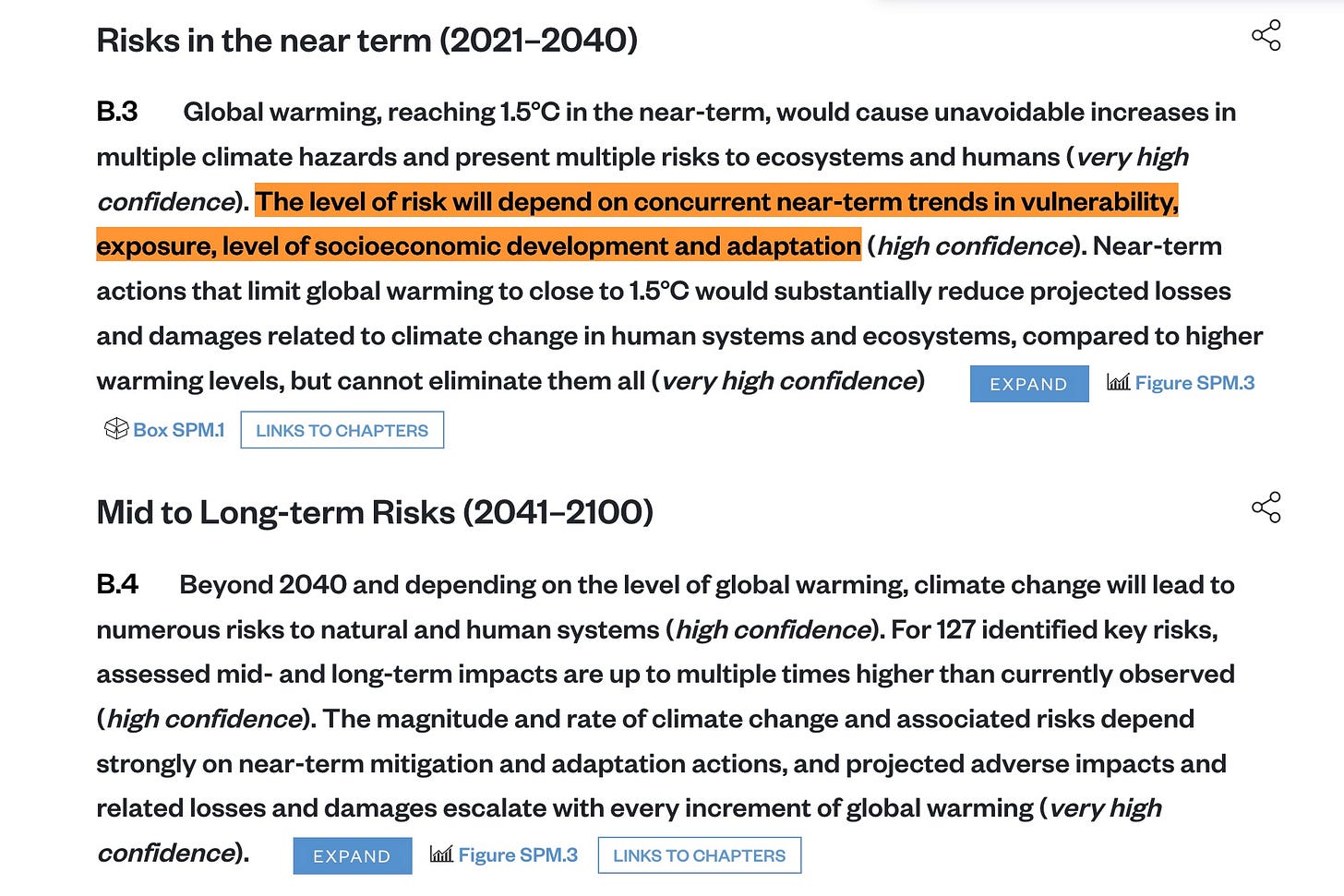Don't Fall into the Binary Emissions vs. Adaptation Trap Facing Climate Change
I've been reporting for 35 years on the dual tracks needed to build a more sustainable human relationship with climate. I worry when folks fall into an either/or debate.
Andrew, a veteran climate scientist at Texas A&M who’s enthusiastically braved the wilds of The Joe Rogan Experience, just posted a piece addressing the dangerous “we’ll adapt” proclamations of those wanting no action on cutting emissions driving heating. He makes vital points about Republican lawmakers cruelly resisting climate action while also pursuing policies cruelly exacerbating climate risk for prisoners and farm workers. But I think his overall framing dangerously discounts adaptation.
Here’s the headline and deck:
Please give it a read then come back here. I’m overdue to get Andrew (and Zeke) on my Sustain What webcast.

Here’s my reaction:
I sense Andrew falls into the binary yes/no adapt/stabilize trap because he’s so pestered by those who, as he says, use "we'll adapt" as a get-out-of mitigation card. But it is a dangerous trap to take their bait and, as a result, miss a crucial reality. Cutting vulnerability to climate hazards has to be pursued as aggressively as cutting CO2.
Even an impossibly aggressive and global emission reduction would take decades to measurably show up in modulated losses from extreme weather events. Do you want marginalized communities who are deeply vulnerable in today's climate to wait for some marginal (and wishful) change in hurricane rainfall in 2060? Listen to this snippet from my long-ago interview with MIT climate scientist John Reilly for a 40-second explainer of the inertia factor in climate:
Exposure and vulnerability to climate hazards remain the dominant factors driving losses. (See L.M. Bouwer and others https://link.springer.com/chapter/10.1007/978-3-319-72026-5_3 .). And, as the IPCC AR6 WG2 impacts/adaptation report notes, from now through 2040, " The level of risk will depend on concurrent near-term trends in vulnerability, exposure, level of socioeconomic development and adaptation": https://www.ipcc.ch/report/ar6/wg2/chapter/summary-for-policymakers/#Risks Don't discount that path to reduced climate risk for the sake of battling those who are indeed abusing this issue.
His point about migration is not in line with the IPCC and other work. In fact, globally, people are moving into flood zones faster than climate change is changing those flood zones. See Tellman et al (and more): https://revkin.substack.com/p/study-finds-global-surge-of-flood-21-08-04
Andrew’s vital point about cruel policies worsening climate effects for those at the margins (like prisoners) actually makes my point. These gaps have to be filled and those actively pursuing such policies have to be countered in the courts or ballot boxes. Climate vulnerability reduction can happen swiftly with wise investments and policies. More: https://revkin.substack.com/p/behind-global-climate-emergency-rhetoric-21-08-06
It’s hard to push two policies at the same time in our polarized policy world. But it’s vital if the goal is to foster an improved relationship with climate and energy for all humans.
Let me know what you think. I’ll give leading climate-health researcher Kristie Ebi of the University of Washington a final word here, in a conversation we had during the Pacific Northwest heat dome a couple years ago. Ebi makes a passionate call for both emissions reduction and adaptation. The related post is here.
Here’s Andrew Dessler’s post:





Thanks for your comments, Andy, I always appreciate your perspective. I agree 100% that adaptation is something we need to be doing and I welcome people honestly talking about adaptation. But my post was about the "we'll adapt" crowd who is not honest — they're using it as a delaying tactic and as a way to advance other political objectives, such as punishing "other" groups (poor, brown, etc.). I would be happy to come on your podcast to talk more about this.
Wise words. "Climate hazards" will increase as populations grow, even if "Climate change" wasn't a thing. More people, mostly the poorest of the poor are going to be in harm's way. Why otherwise reasonable people deny this fact is a mystery.